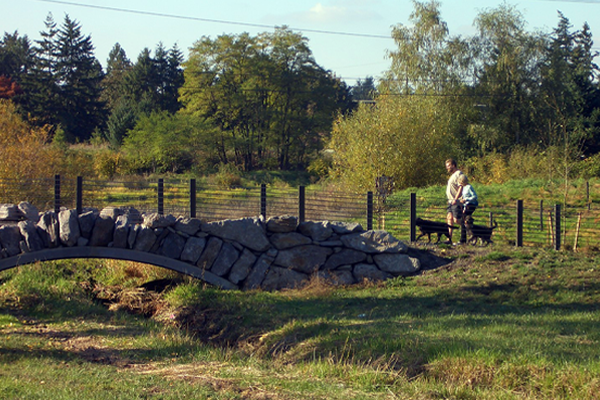Water Resources Protection Program

Protect critical aquifers underlying the city
The City of Vancouver relies exclusively on ground water, from three different regional aquifers, for our drinking water. The Troutdale Aquifer System is utilized by both Vancouver and Portland as a public water source. In 2006, the Environmental Protection Agency designated the Troutdale Aquifer System as a Sole Source Aquifer. The entire City is identified as a Critical Aquifer Recharge Area (CARA) and protected through the City’s Water Resources Protection Ordinance (VMC 14.26).
Water resource protection in the City of Vancouver is essential to the prosperity of our community. Water protection policies and ordinances are in place to protect surface waters (Burnt Bridge Creek, Columbia River and Vancouver Lake) and our drinking water resources. Reducing the risk of degrading water quality by removing toxic pollutants before reaching surface and groundwater will improve water quality and protect fish, wildlife and human health through eliminating potential sources of contamination.
Only Rain Down the Drain
Did you know that everything flowing down the storm drain goes directly to our streams, rivers and wetlands? Please, only rain down the drain!
Residents and business owners can take action to keep harmful materials out of the environment and our water sources. Protecting water is good for our health, environment and local economy. It costs a lot less to prevent pollution than to clean up major spills.
Help Protect Your Community’s Water Resources
For Residents
Use and dispose of chemicals wisely! Never pour waste down the drain, onto the ground or into a storm drain. Learn how you can reduce pollution to local waterways.
For Business Owners
Pollution from business operations can harm our local creeks, streams and groundwater. Learn about practices your business can take to guard against pollution.
Maintain Private Stormwater Facilities
If there is a private stormwater facility in your neighborhood, your homeowners’ association (HOA) or property owners in your development are likely responsible for its care and maintenance. Knowing what to do and how to do it, can save time and money and protect the health of waterways in our community.

